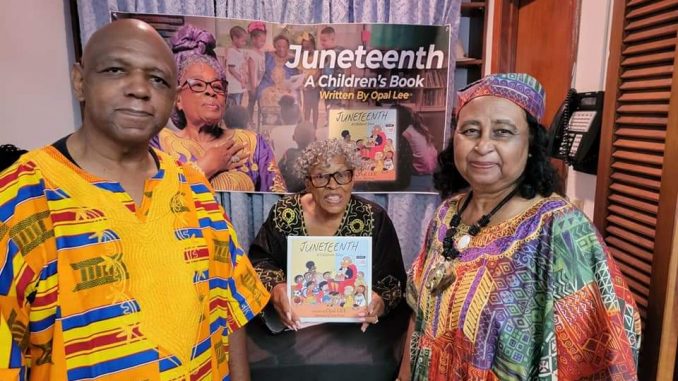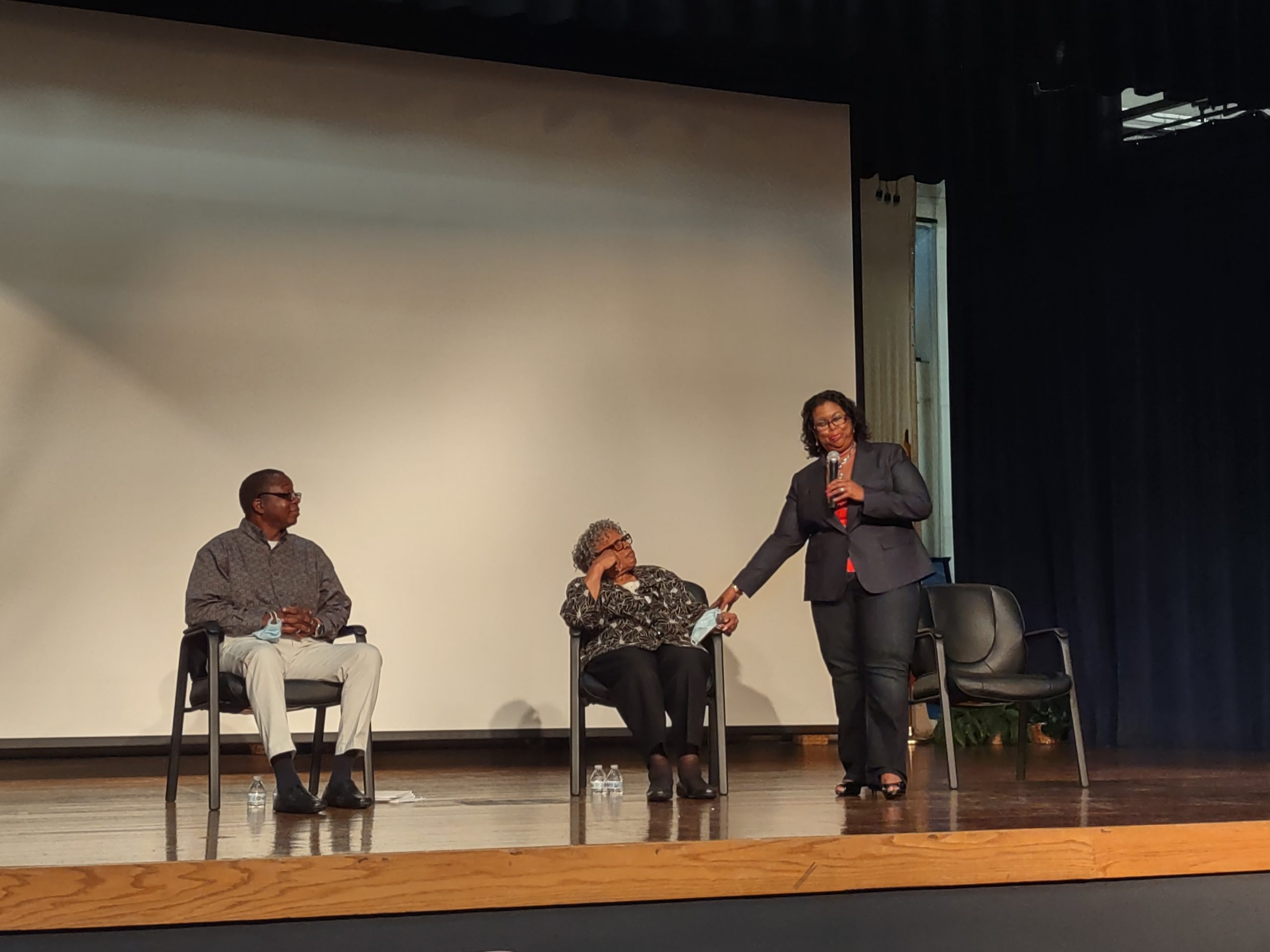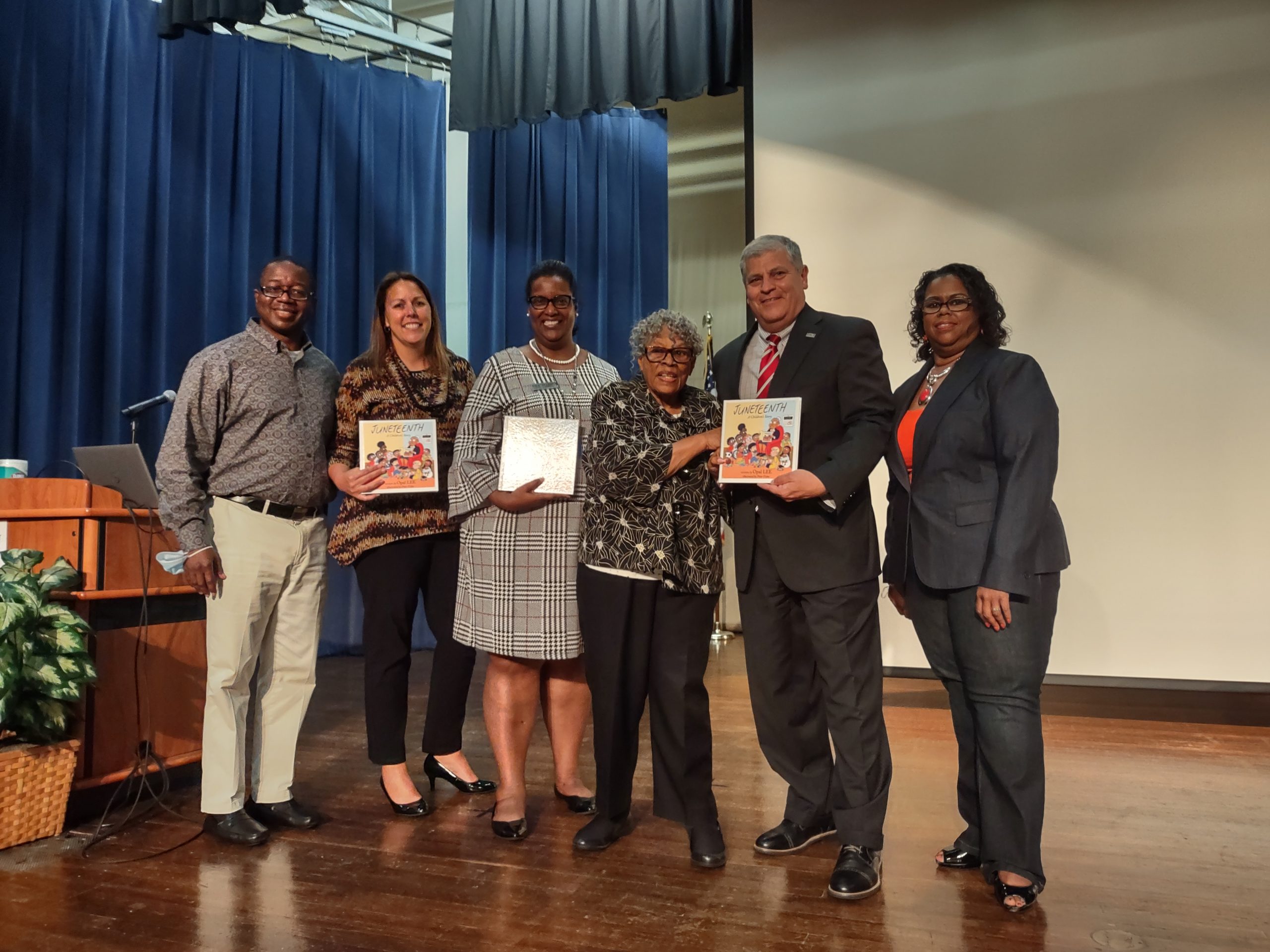
By Anthony Williams – Nonagenerian Opal Lee, dubbed the “Grandmother of Juneteenth,” worked for decades petitioning U.S. presidents to declare June 19th a federal holiday. On June 17, 2021, the Fort Worth, Texas, resident was at the White House to witness President Joe Biden sign into law that Juneteenth would be recognized as such.
Dr. Belay Reddick, a Jacksonville native, spent 16 years in a federal prison and was able to work his way from the prison furniture factory to becoming a reentry expert and author, which led to him being hired by FedEx Express. The two have embarked on a national “Change Tour” with a stop in Jacksonville for a book signing, church service, award recognition, college dialogue and meetings with local dignitaries.

For Lee, a Texas native, the journey to Juneteenth was personal. On June 19, 1939, her home was vandalized and burned down by violent white mobsters who believed her family should not have lived in their affluent neighborhood. Though much has changed, there are still issues in the Black Community that take their roots from slavery. “So many things that affect us…homelessness, joblessness, healthcare…(the) pipe from the school to the prison,” Lee added. Lee’s tour partner Jacksonville native Dr. Belay Reddick was once a victim of the prison system. He served 16 years in a US Federal Prison, only to be released due to his socio-political efforts behind walls.
Though Reddick and Lee came from different paths they have the same goal; becoming a voice for those who could not speak. “Working for free (in Federal Prison) is very similar to slavery, especially in the state system. The Federal System does pay minimum wages, but it’s still like slavery wages. We’re talking about 50 cents a day, if that…in regards to being chained and serving time, but you’re helping to benefit major corporations,” Reddick said. The similarities between slavery and the US Prison system are obvious, but what is not is the fact that newly released inmates are ill equipped to make it back into society, just like the freed men and women were “released” into society without knowing anything except how to be slaves.
“The US Criminal Justice system focuses more on housing versus rehabilitation, unless a person takes the initiative to rehabilitate themselves…it becomes very difficult,” Reddick stated. Due to Mrs. Lee helping get Juneteenth passed into a federal holiday, the already popular conversation of reparations for the Black Communities has grown.

“If everybody who experienced Jim Crow got reparations, there wouldn’t be no reparations…everybody deserves something… I just don’t think you’ve (the government) got the money to pay people for what has happened to them,” said Lee. Both activists have helped make substantial change within not only their local communities but with many other Black American communities around the nation through thier American experience.
Shown at the book signing is the “Grandmother of Juneteenth” with Association for the Study of African American Life and History (ASLAH) members George and Hazel Gillis.

Be the first to comment